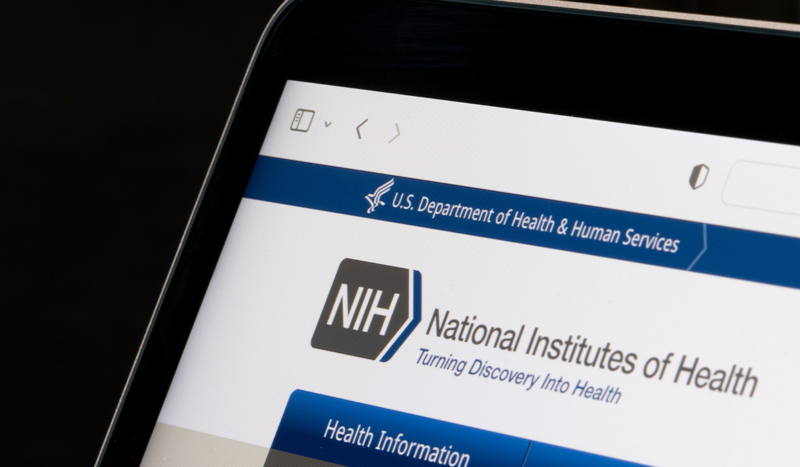
Tada Images / stock.adobe.com
A subcommittee of the House Oversight Committee announced last week the launch of an investigation into the National Institute of Health’s (NIH) nearly-$10-million taxpayer-funded study led by a gender industry researcher who is concealing her results apparently because they do not support the effectiveness of puberty blockers in treating mental health issues related to gender confusion.
In a letter dated November 4 to NIH Director Monica Bertagnolli, Subcommittee on Health Care and Financial Services Chairwoman Rep. Lisa McClain, R-MI, requested documents related to an ongoing research project led by Dr. Johanna Olson-Kennedy, who heads the nation’s largest gender clinic for children and teens at the Children’s Hospital of Los Angeles.
As CatholicVote reported, Olson-Kennedy told the New York Times in October she was withholding the results of her study – begun in 2015 and for which she was ultimately granted $9.7 million in taxpayer funds – because she feared the unexpected outcome would be “weaponized” and used in lawsuits as evidence that puberty blockers are not an effective means to treat children expressing gender confusion.
“We are alarmed that the project’s principal investigator, Dr. Johanna Olson-Kennedy, is withholding publication of the project’s research findings which cast doubt on the efficacy of the ‘gender affirming’ model, because she believes the findings could be ‘weaponized’ by critics of transgender medical interventions for children,” wrote McClain to Bertagnolli.
The letter goes on to explain that, in one study of Olson-Kennedy’s project – the Trans Youth Care (TYC) study – 95 children with a mean age of 11 were given puberty blockers while their mental health data were collected over two years. Now, the gender industry doctor claims, the cohort reported no mental health improvements after initiating the hormone-blocking drugs.
“They’re in really good shape when they come in, and they’re in really good shape after two years,” she told the Times – though the news outlet noted a contradiction in her “earlier description of the group, in which Dr. Olson-Kennedy and her colleagues noted that one quarter of the adolescents were depressed or suicidal before treatment.”
More specifically, McClain observed to Bertagnolli that, in addition to gender dysphoria, “51 percent of the TYC cohort reported elevated depression symptoms and 57 percent reported clinically significant anxiety. Two-thirds of the children reported suicidal ideations and one fourth of those with suicidal ideations reported at least one past suicide attempt.”
The chairwoman added:
Dr. Olson-Kennedy’s apparent mischaracterization of the TYC study’s results and refusal to publish taxpayer-funded research because they contradict her pre-existing biases and could be cited by critics of “gender affirming” medical interventions is an irrefutable example of politicization of scientific research to further an ideological agenda. Deliberately mischaracterizing and withholding the results of the TYC study has serious implications for the health and safety of children who are subjected to “gender affirming” medical procedures, many of which are irreversible and hold lifelong implications despite lacking adequate scientific support for their efficacy or safety.
As the Times report suggested, Olson-Kennedy may have been hopeful that the outcome of her own study would replicate an older Dutch study that actually launched the transgender medicine trend called “gender-affirming care.”
Among the resources cited in McClain’s letter is “The Cass Review, Independent Review of Gender Identity Services for Children and Young People: Final Report.” The acclaimed systematic review of research and guidelines on so-called “gender-affirming care” led by British pediatrician Dr. Hilary Cass ultimately concluded that evidence supporting the treatment of gender-confused children with puberty blockers and cross-sex hormones was “remarkably weak” and based on “poor quality of the published studies” and “misinformation” while also exhibiting “expectations of care” that are “far from usual clinical practice.”
An October 27 report at Lumen-News noted that, in 2018, Olson-Kennedy ignited a firestorm when she was featured in a video of her presentation at a Gender Spectrum Professional Symposium. The gender activist discussed her study, published in JAMA Pediatrics, in which she recommended that gender-confused girls as young as 13 be subjected to mastectomies.
Based on only 136 “completed surveys” at her gender clinic, Olson-Kennedy and her team concluded that “[c]hest dysphoria was high among presurgical transmasculine youth, and surgical intervention positively affected both minors and young adults.”
The video ultimately went viral as it revealed Olson-Kennedy’s flippant statement dismissing concerns about teen girls making the choice for a double mastectomy.
Claiming that young girls are fully capable of making sound judgments in such a situation, Olson-Kennedy is heard in the video justifying her position:
Adolescents actually have the capacity to make a reasoned, logical decision. And here’s the other thing about chest surgery. If you want breasts at a later point in your life, you can go and get them.

